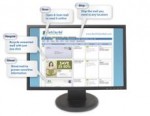You’ve got no mail

According to the Office of Compliance Assistance and Pollution Prevention, 100 million trees are used to produce junk mail in America every year. That’s more than 4 million tons of wasted natural resources. Luckily for Mother Earth and junk mail recipients alike, a Seattle-based business is doing its part to reduce junk mail and send it back to the environment.
Founded in 2003, Earth Class Mail has set out to reinvent snail mail for the digital age.
Users of the service choose to redirect their mail to one of 23 Earth Class Mail warehouses. At each warehouse, mail is scanned and digital images of the letters’ exteriors are sent to users’ online accounts. The account holder can then choose to have the letter opened and scanned, transferred directly to his or her home or business address, or shredded and recycled.
Earth Class Mail founder and CEO Ron Wiener told entreprenuer.com that Earth Class Mail came about as a result of personal frustration.
“What inspired me to start Earth Class Mail was the classic ‘necessity being the mother of invention’ story,” he said. “I was tired of spending an hour of every day driving to collect mail from various offices and P.O. boxes for all the different ventures I’m involved with, and wanted a way to retrieve my mail, shred and recycle the junk, deposit checks, etc., from anywhere, anytime, just like I handle my voicemails and e-mails.”
As simple as it may sound, there is some obvious concern about Earth Class Mail’s security standards. Users are, after all, allowing the inspection of mail that could contain personal information or checks and money orders. However, earthclassmail.com claims to have the highest standard of security, second only to “top-secret government establishments.” The Web site states that “no devices that could record or send information are allowed in secured areas. Not even a pencil.”
With their information safeguarded, many businesses have switched from analog mail services to Earth Class Mail, including Price Asher of Seattle, a landscape and design group. Elizabeth Price-Asher, owner and operator of the design team, said that digital mail saves her time and money.
“This saves me an employee,” Price-Asher told King 5 News in Washington. “This person opens your mail. It’s secure. They file it. You don’t have to have somebody do that.”
Though private citizens may not ordinarily need to hire employees to open their mail, the business appeals to followers of the eco-friendly movement who are conscious of their carbon footprint.
“I launched Earth Class Mail because of its potential to massively impact the economy and the environment,” Wiener said. “More than 90 percent of the mail we receive is recycled.” In 2007, Earth Class Mail recycled more than 1 ton of mail each month.
In recent years, USF has taken steps to reduce the amount of paper used in daily transactions and distributed to students.
“The University has eliminated the printed class schedule book, which is now available exclusively online,” said News Coordinator Barbara Perkins in the Office of Communications and Marketing.
USF has shown improvement via “online Web applications, implication of e-commerce to reduce payment-related paperwork, consolidation of printers and printing services in some offices, pay-for-print services in the open-use computer labs (and) reduction in the number of paper mailings to students through the use of email,” Perkins said.
Although University officials have yet to express interest in Earth Class Mail or similar services, USF is making progress in reducing its carbon footprint.





